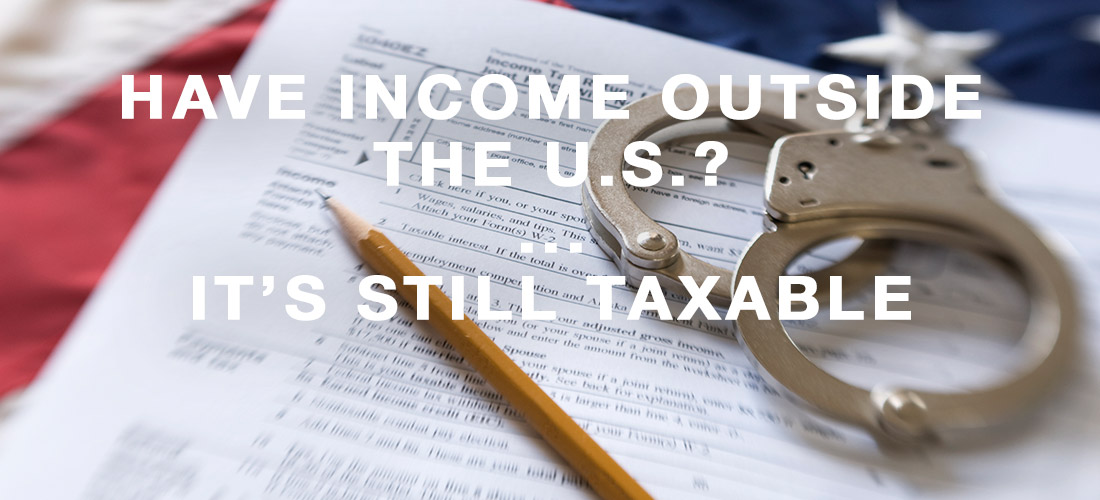Another Leak Of Taxpayers Allegedly Involved In Hiding Assets Offshore – What You Need To Know About The “Pandora Papers”
Another Leak Of Taxpayers Allegedly Involved In Hiding Assets Offshore – What You Need To Know About The “Pandora Papers”
A compilation based on 11.9 million financial records uncovers more than 100 billionaires, 30 world leaders and 300 public officials and their use of offshore accounts to avoid taxes or otherwise hide ownership of assets.
On October 3, 2021 the International Consortium Of Investigative Journalists released what is now dubbed the “Pandora Papers”. The reporting is similar to the Panama Papers (2016) and the Paradise Papers (2017) which exposed cases involving celebrities and business executives who reportedly moved large chunks of their wealth into offshore tax havens. The source of documents in the Pandora Papers came from 11.9 million financial records comprising nearly 3 terabytes of data from 14 different firms doing business in 38 jurisdictions. The information is even more extensive than that of the Panama Papers which centered on documents secured from the Panamanian law firm of Mossack Fonseca or the Paradise Papers which centered on documents connected with institutions in Bermuda including the Appleby Law Firm and the Asiaciti Trust Company. The Pandora Papers detail more than 29,000 offshore accounts held by more than 130 Forbes-designated billionaires and 330 current and former public officials in more than 90 countries, including 14 current heads of state.
Now while it’s not necessarily illegal to distribute wealth across secret companies, which can be used by the super wealthy as legitimate forms of holding their wealth, shell companies can be used to evade taxes and disguise illegal behavior. Also just because someone is mentioned in the Pandora Papers, it doesn’t necessarily mean their business holdings are illegal or they did anything illegal. Unfortunately, when one is mixed in with a basket of bad apples, you know how people will tend to judge the whole harvest.
Nevertheless, this leak is another huge hit the offshore world has taken. The Pandora Papers included connections to Jordan’s King Abdullah II, Czech Prime Minister Andrej Babis, Ecuadorean President Guillermo Lasso, Kenyan President Uhuru Kenyatta, Chile’s President Sebastián Piñera, Dominican President Luis Abinader, and President Milo Djukanovic of Montenegro, as well as former British Prime Minister Tony Blair.
So as government tax officials start reading the Pandora Papers, you can expect in the coming months that many new names will come out that the IRS will be interested in targeting.
Filing Requirements If You Have Foreign Accounts
By law, many U.S. taxpayers with foreign accounts exceeding certain thresholds must file Form 114, Report of Foreign Bank and Financial Accounts, known as the “FBAR.” It is filed electronically with the Treasury Department’s Financial Crimes Enforcement Network (FinCEN).
Taxpayers with an interest in, or signature or other authority over, foreign financial accounts whose aggregate value exceeded $10,000 at any time during a calendar year must file FBARs. It is due by the due date of your Form 1040 and must be filed electronically through the BSA E-Filing System website.
Generally, U.S. citizens, resident aliens and certain non-resident aliens must report specified foreign financial assets on Form 8938 if the aggregate value of those assets exceeds certain thresholds. Reporting thresholds vary based on whether a taxpayer files a joint income tax return or lives abroad. The lowest reporting threshold for Form 8938 is $50,000 but varies by taxpayer.
By law, Americans living abroad, as well as many non-U.S. citizens, must file a U.S. income tax return. In addition, key tax benefits, such as the foreign earned income exclusion, are only available to those who file U.S. returns.
The law requires U.S. citizens and resident aliens to report worldwide income, including income from foreign trusts and foreign bank and securities accounts. In most cases, affected taxpayers need to complete and attach Schedule B to their tax return. Part III of Schedule B asks about the existence of foreign accounts, such as bank and securities accounts, and usually requires U.S. citizens to report the country in which each account is located.
Penalties for non-compliance.
Civil Fraud – If your failure to file is due to fraud, the penalty is 15% for each month or part of a month that your return is late, up to a maximum of 75%.
Criminal Fraud – Any person who willfully attempts in any manner to evade or defeat any tax under the Internal Revenue Code or the payment thereof is, in addition to other penalties provided by law, guilty of a felony and, upon conviction thereof, can be fined not more than $100,000 ($500,000 in the case of a corporation), or imprisoned not more than five years, or both, together with the costs of prosecution (Code Sec. 7201).
The term “willfully” has been interpreted to require a specific intent to violate the law (U.S. v. Pomponio, 429 U.S. 10 (1976)). The term “willfulness” is defined as the voluntary, intentional violation of a known legal duty (Cheek v. U.S., 498 U.S. 192 (1991)).
Additionally, the penalties for FBAR noncompliance are stiffer than the civil tax penalties ordinarily imposed for delinquent taxes. For non-willful violations it is $10,000.00 per account per year going back as far as six years. For willful violations the penalties for noncompliance which the government may impose include a fine of not more than $500,000 and imprisonment of not more than five years, for failure to file a report, supply information, and for filing a false or fraudulent report.
Lastly, failing to file Form 8938 when required could result in a $10,000 penalty, with an additional penalty up to $50,000 for continued failure to file after IRS notification. A 40% penalty on any understatement of tax attributable to non-disclosed assets can also be imposed.
The Solution.
The IRS has special programs for taxpayers to come forward to disclose unreported foreign accounts and unreported foreign income. The main program is called the Offshore Voluntary Disclosure Program (OVDP). OVDP offers taxpayers with undisclosed income from offshore accounts an opportunity to get current with their tax returns and information reporting obligations. The program encourages taxpayers to voluntarily disclose foreign accounts now rather than risk detection by the IRS at a later date and face more severe penalties and possible criminal prosecution.
What Should You Do?
Don’t delay because if the government finds out about you first, you can be subject to criminal prosecution. Taxpayers who hire an experienced tax attorney in Offshore Account Voluntary Disclosures should result in avoiding any pitfalls and gaining the maximum benefits conferred by this program. Let the tax attorneys of the Law Offices Of Jeffrey B. Kahn, P.C. located in Orange County, San Francisco and other California locations resolve your IRS tax problems, get you in compliance with your FBAR filing obligations, and minimize the chance of any criminal investigation or imposition of civil penalties. Also, if you are involved in cannabis, check out what our cannabis tax attorney can do for you. Additionally, if you are involved in crypto currency, check out what a bitcoin tax attorney can do for you.







 Follow
Follow Follow
Follow